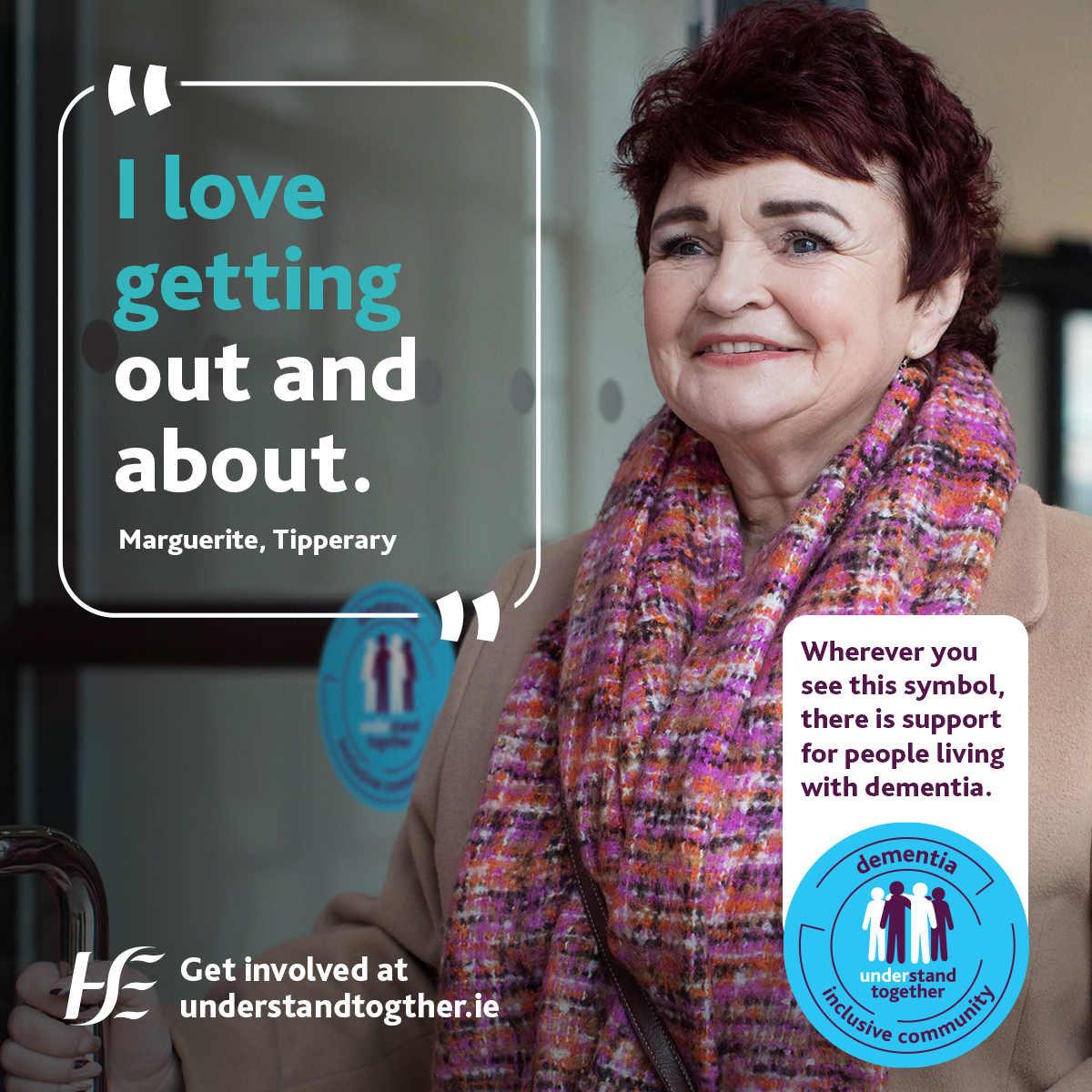Home » Understanding dementia this World Alzheimer’s Month
September marks World Alzheimer’s Month, and in this article Fiona Foley, Senior Project Manager at Dementia: Understand Together, which is part of the HSE’s National Dementia Office, provides information on dementia and the simple steps we can all take to support people living with the condition.

Each year, more than 11,000 people develop dementia across the country — that is approximately 30 people every day. HSE figures show that there are over 64,000 people living in Ireland with dementia, but we know that prevalence is likely to be much higher than this, and numbers are expected to more than double to over 150,000 by 2045.
Dementia is an umbrella term for a range of diseases that damage the nerve cells in the brain. Generally, the condition affects the parts of the brain that control learning, memory and language. There are many types of dementia, including Alzheimer’s disease and vascular dementia, Lewy body dementia and young onset dementia. Some people may have more than one type of dementia.
While the risk of dementia increases with age, it is not a normal part of ageing. There are people in their 30s and 40s being diagnosed with dementia and so it’s important to be aware of the symptoms and seek support as soon as possible. Symptoms can vary considerably from one person to the next and the early signs can be subtle and not easy to recognise. They might include memory loss, difficulties with carrying out everyday tasks, solving problems or changes in mood and behaviour. We all forget where we put our keys from time to time or need a prompt for a pin or phone number, but if you’re starting to notice an impact on your day-to-day life, that’s the time to book an appointment with your GP and talk through those concerns.

The majority of people with dementia live in the community and want to continue doing so. We all have a role in ensuring that they can stay socially and physically active and engaged to support their health and wellbeing.
In addition to needing prescription medication, dementia can affect many social aspects of a person’s life. Therefore, it is vital that the community pharmacy team are aware of all the practical supports that are available, so they can discuss and offer practical support and guidance to people living with dementia and their loved ones.
Pharmacies offer an additional opportunity to encourage people or family members to get support if they notice a change in mood or behaviour. Even something as simple as suggesting a hearing test — hearing loss has been identified as one of the 12 modifiable risk factors that could account for 40 per cent of dementias worldwide in a 2020 Lancet study. This could have a real impact on a person’s quality of life, now and into the future.
The Irish Pharmacy Union is working with the Dementia: Understand Together campaign which aims to create an Ireland that embraces and includes people living with dementia and displays solidarity with them and their loved ones.
The campaign is one of the six priority actions of the National Dementia Strategy, which identifies key principles to underpin and inform the full range of services provided to people with dementia, their families and carers. It is also an integral part of the Model of Care, with a focus on continuing to increase awareness and understanding of dementia as well as post-diagnostic supports for people with dementia, families, carers and supporters.
Dementia does not mean someone must stop doing the things they love, but as time goes on, they may need support to continue to do these things. Do not underestimate the difference you can make. Whatever the interest may be, having the choice to continue doing them can bring extra joy to life.
Yes. There is a wide range of free online training options available to anyone who would like to learn more about dementia and the practical steps we can take to support people.
For larger groups and organisations, the campaign can also offer bespoke training options that can be built into your organisation’s current learning platforms or can be delivered online or in-person.
An example of this, is the work that has been done with the support of Boots Ireland. Working with the Understand Together campaign, Boots developed a dementia awareness e-Learning module to upskill their team members. People with dementia shared their personal experience at conferences for pharmacists and store managers, and focus group sessions with people affected by dementia were held to understand their experience when shopping in Boots stores. Most recently in promoting Brain Health Awareness week, the organisation had the Alzheimer Society of Ireland’s mobile information bus and Dementia Advisors, alongside two of their stores.
Joint signage and promotional materials have been developed to raise awareness of dementia in stores and online. This incorporates the national dementia inclusive community symbol to show that Boots Ireland are connected to the wider efforts of partners and champions across the country.
“Staying physically active, staying socially engaged, challenging your brain, managing stress, and adapting your lifestyle are ways you can proactively keep your brain healthy, particularly as people age. We’re proud to partner with Dementia: Understand Together to raise awareness, build compassion and ensure Boots is an inclusive place for those experiencing dementia.”Caoimhe McAuley, IPU Vice-President, Boots Director of Pharmacy and Superintendent Pharmacist
Fiona Foley

Senior Project Manager, Dementia:
Understand Together, HSE National Dementia Office
Highlighted Articles